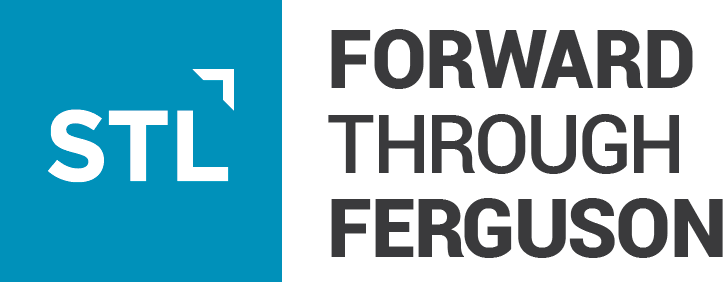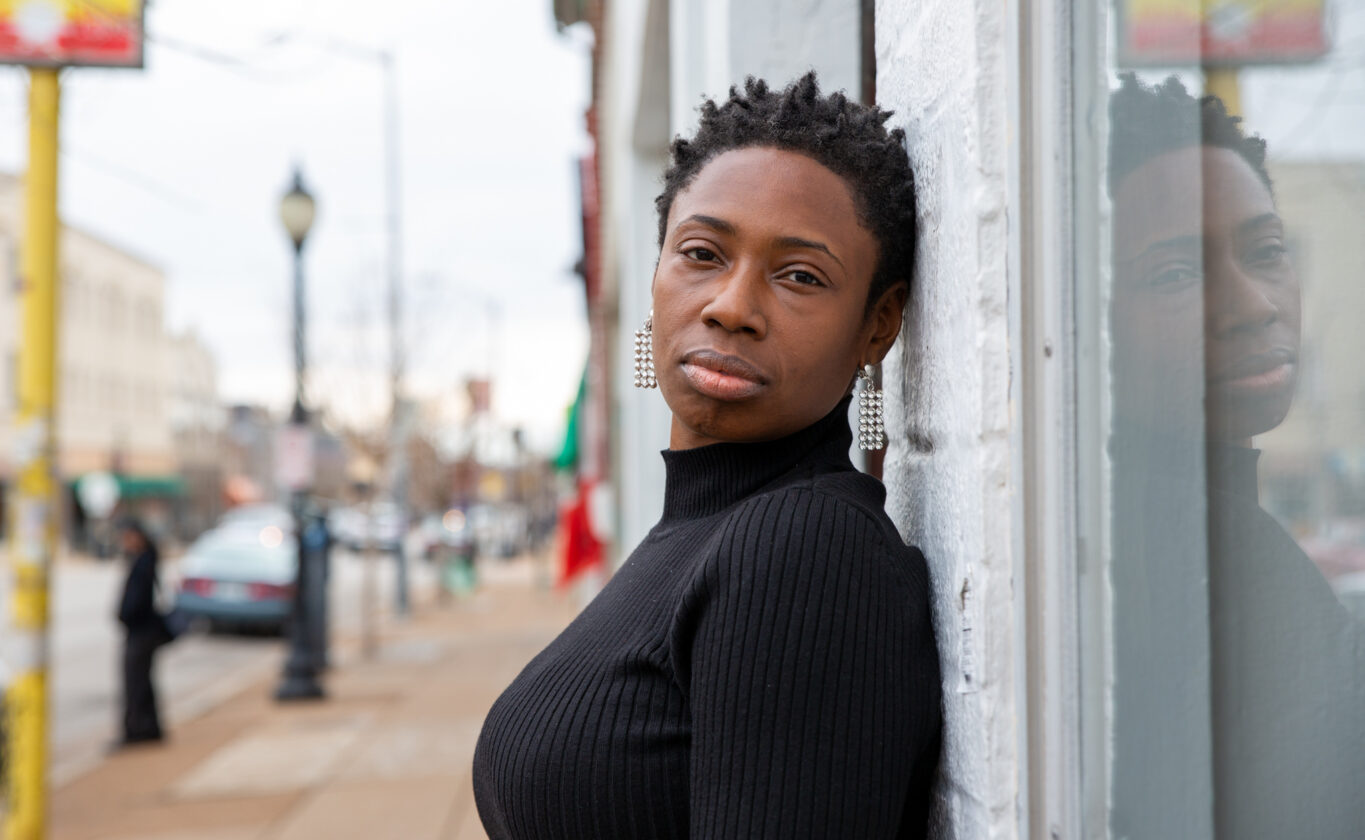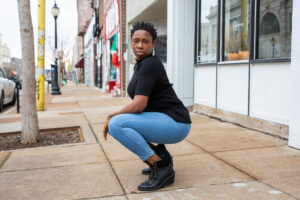
Photo credit: Colleen O’Connell Smyth / Humans of St. Louis
Tracy: In 2016, I was living in the 22nd Ward. I was out on the street with other addicts. Every time the alderman saw us, he called 911. It was clear we needed help and support, but not once did he ask if we wanted treatment or even a sandwich. What happens when you call the police when someone is in an active state of addiction? They get put into the carceral system, not treatment centers. This doesn’t address what’s wrong. I only needed to go through treatment one time. Once I got help, I transitioned into the person I am now. When we see people on the street, it should be, ‘Do you have support? Do you have a family? What do you need?’ Instead, it’s, ‘Let’s take you away and put you away so we don’t have to deal with you.’
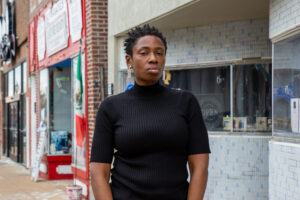
Violence is a preventable disease. I read a study from the CDC, and they have a whole list of risk factors for being a victim of or perpetrating violence. It includes stable homes, economic well-being, affordable housing, and close-knit family structures. All of those are missing when talking about creating solutions to violence. In every plan for public safety and public health, we have yet to push the funds to where they need to go. There are structures put in place to supposedly address safety, but it’s an illusion. They perpetuate harm on families, particularly Black and Brown families. The St. Louis Police Department has one of the highest rates of killings per capita in the nation. We address public safety with detention, which is a reaction, not proactive. Our institutions have to be created not to protect property, but to protect people. They were created by a certain group of people who benefit. There are communities that don’t have direct relationships with the police on an everyday basis. They don’t have interactions where people get killed. But my community is not one of them.
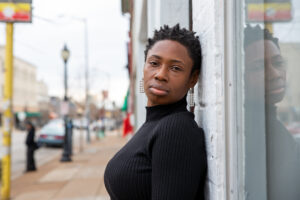
If you live in St. Louis, you have been affected by violence. Even if you’re a college student at St. Louis University. I get messages on my cell phone from SLU public safety when an assault or robbery has occurred. I might be going to a prestigious institution, but right next door there are communities suffering. We’re all interconnected.
I grew up in St. Louis, and a lot of things I experienced were a result of systemic racism, such as poverty, family dynamics, negative self-image because of my skin complexion, sexual abuse. I didn’t have the resources I should have had. So, for me, this work is personal. My story includes 23 years of getting into drugs and surviving the carceral system. It wasn’t until after prison that I realized there are systems that created and established the conditions of my community. The systems we have don’t address the core issues of violence or help us. So I felt like in order to help restore and repair things, I needed to be a part of the work. That’s why I became a Healing Support Specialist and Power Builder Organizer for the Freedom Community Center.
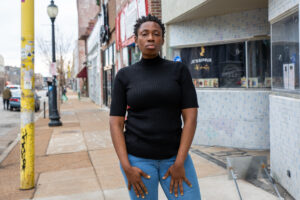
So many times I’ve heard the police say, ‘Well, we need to lock one of you up.’ I was working at the St. Louis Bail Project, which provides assistance for individuals in pre-trial detention who can’t afford to pay bail. Upon someone’s release, I spent a lot of time building relationships and trust and getting them community resources to improve their quality of life.
People who respond in crisis need to be able to have relationships with the individuals we provide service to to be a part of the community. One time an individual I provided services to was having an altercation with his mother. She called me hysterical and said, ‘I don’t want to call the police, but I need help right now. I need you to talk to him because he listens to you.’ I went into action mode and immediately called the Places for People crisis line. I had them call him and I spoke with him as well. We ended up getting him out of the situation and into a hotel. I checked in with the mother, too. At the time, she was worried that if she called 911, her son would go to jail because he had a case with the courts. Their altercation was because of family dynamics, and the mom trusted that I would intervene at the moment with care and concern. That’s all people want. They don’t want their loved ones to go to prison. Most people don’t even call 911. The majority of times Black people call, they’re on the receiving end of violence and you’re criminalized for even making a call. And that mom knew I would make sure both of them got what they needed and no one would be incarcerated or harmed.
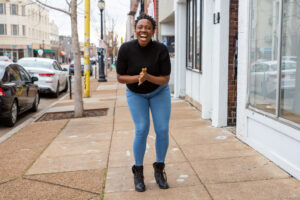
Representation matters. When police are responding to me, it would help if they shared similar life experiences or if they at least could relate. I want them to not just solve an issue but see that I am being treated okay. And trust is so important. There needs to be true care and concern from responders equipped to deal with the whole person. Ask questions about how an individual is doing: ‘What do you need at this moment? Do you feel safe?’ Individuals can tell you that. I need to trust that the first responder really cares about what is going on with me. I don’t believe it can happen in the current structure. In our Power Builder meetings, we have a list of what individuals feel they need to be safe and none of those things include police presence. I don’t have much faith in transforming the system unless something different is created outside of it.

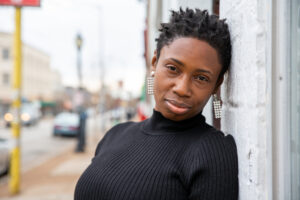
—
Tracy Stanton is a former Power Builder Organizer at Freedom Community Center. Freedom Community Center (FCC) is a Black-led organization in North St. Louis founded to dismantle systems of oppression that inflict harm and trauma on Black communities in St. Louis City, particularly the police and the criminal punishment system.
Cami Thomas / My Friends And I and Colleen O’Connell Smyth / Humans of St. Louis contributed to this photo story.
This story is a collaboration between Humans of St. Louis and Forward Through Ferguson for #Transforming911, an accountability and advocacy tool that examines St. Louis’ 911 system and serves as a call to reimagine public safety.
Learn more and get involved at transforming911.org.
